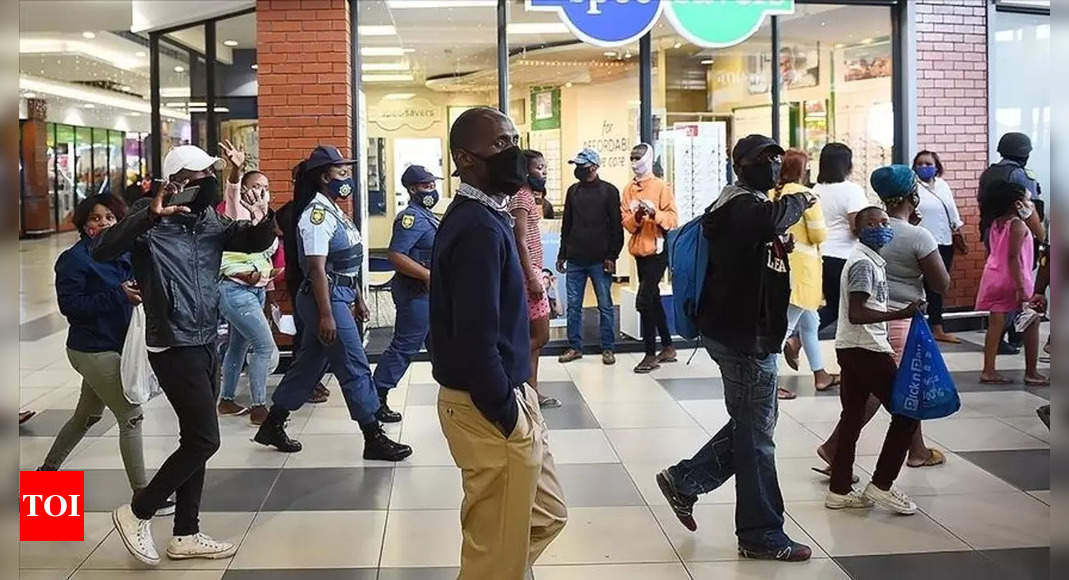South Africa to remain at lowest lockdown level despite record number of infections in fourth wave – Times of India
[ad_1]
Confirming that the country was now firmly in the grip of a fourth wave, the National Coronavirus Command Council (NCCC) appealed to South Africans to play a role in avoiding further spread of the virus through social distancing, mask wearing and sanitisation and to avoid large gatherings that could become super spreaders of the disease.
The anti-coronavirus authority, in a statement, said that while the new wave, largely being driven by the Omicron variant of the virus, is spreading quicker than previous waves, the rates of hospitalisations and deaths remain relatively low.
It said that the country will remain at the lowest Level One of its five-level strategy of the Covid-19 restrictions introduced to check the spread of the pandemic.
South Africa registered a record number of 26,976 infections overnight, taking the national tally to 3,231,031, while 54 deaths were reported during the period, bringing the total number of fatalities to 90,226.
As millions of South Africans start heading for coastal holiday areas and ancestral homes in rural areas for holidays which started on the public holiday of Reconciliation Day on Thursday, Health Minister Joe Phaahla also made a special plea to travellers to get vaccinated.
“We call upon all travellers, especially those who are unvaccinated or partly vaccinated coming from areas declared hotspots, to get vaccinated before hitting the roads to protect their families and friends they will be visiting during this period associated with large social gatherings like parties and weddings, which can be ‘super spreader’ events that carry a huge risk of transmission of the virus,” Phaahla said.
The major exodus will be from the economic hub of Gauteng provinces, where many factories and businesses closed on Wednesday for the traditional break until early January 2022.
Less than a month after South African scientists first announced the discovery of the Omicron variant, the NICD (National Institute For Communicable Diseases) said that evidence so far suggests that the variant may be milder than its predecessors and could also be causing fewer hospitalisations and deaths than previous waves.
The South African travel industry, meanwhile, has cautiously welcomed the lifting of the travel ban by the UK, which it instituted within hours of the Omicron variant being announced.
However, travel agents said it might be a little too late, as most tourists from the UK, South Africa’s biggest holiday market during the current summer months, had cancelled their bookings amid concerns over the current fourth wave and uncertainty about airlines reintroducing flights.
President Cyril Ramaphosa had earlier denounced the UK’s decision, which was followed by over 20 other countries, as a “knee-jerk reaction” not based on scientific evidence.
[ad_2]
Source link


Comments are closed.